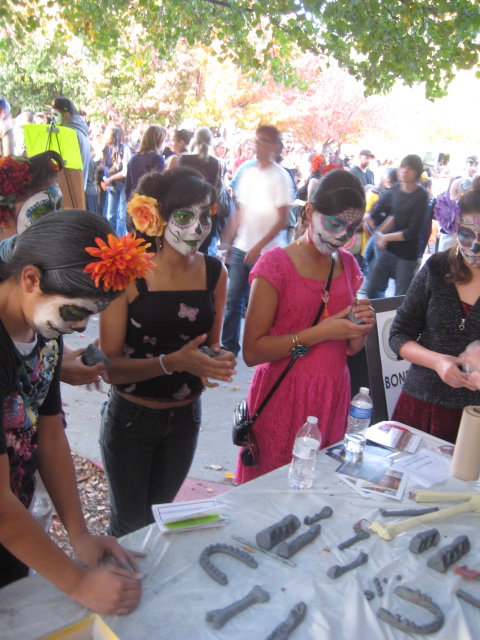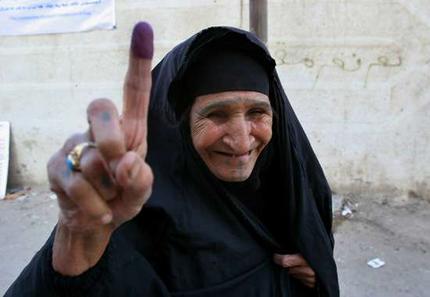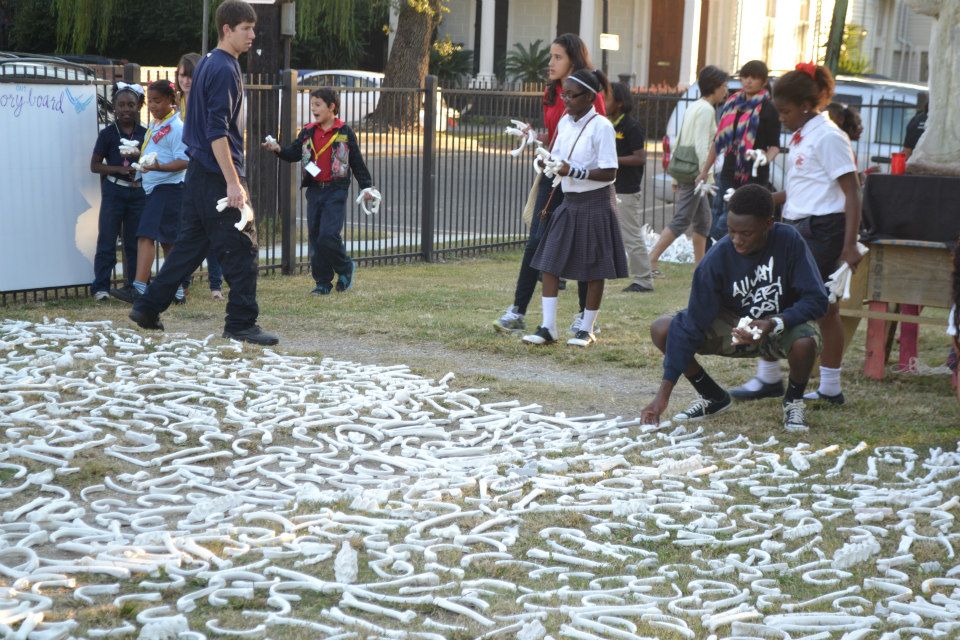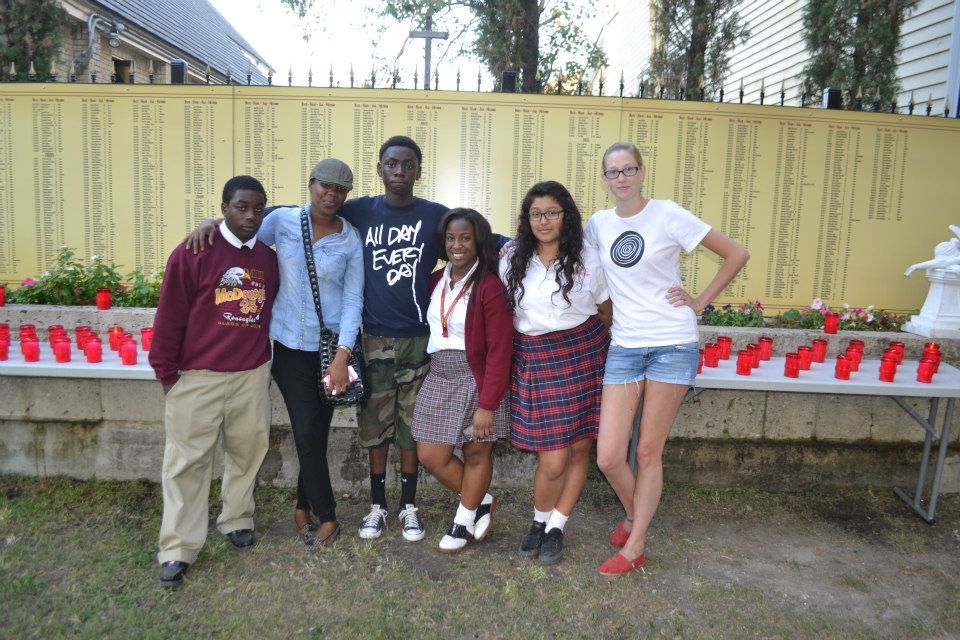Personal reflections from New Orleans: Local to Global
 Friday, November 9, 2012 at 1:56PM
Friday, November 9, 2012 at 1:56PM As a follow up to our blog last Friday where we highlighted the incredible work being done in New Orleans with their 10,000 Bones: Local to Global event we asked Emily Gatehouse who is the Louisiana Co-Coordinator of One Million Bones to reflect on her experience helping organize the event. Below are her reflections.
Guest post by Emily Gatehouse Louisiana Co-Coordinator of One Million Bones
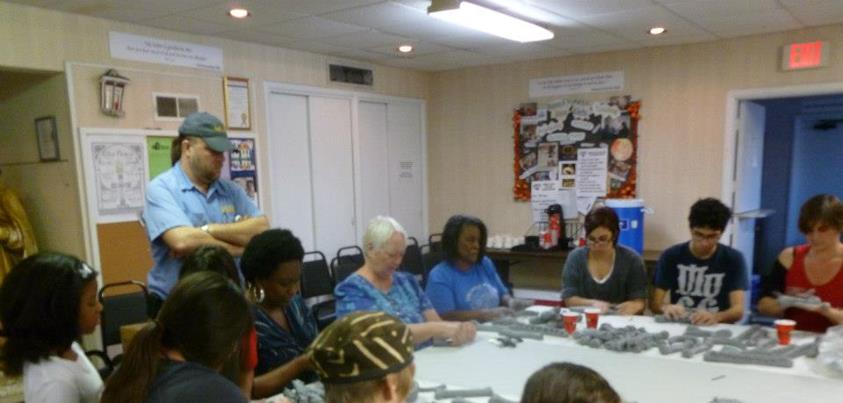
This is has truly been one of the most amazing experiences that I have ever had. It was as much a growing and learning process for the students and community members we engaged as it was for me. Personally, this was my first time coordinating anything of this scale or importance. I learned how to reach out to new community partners, how to be a guest speaker, how to manage PR, how to book guest speakers- how to coordinate an open community event. However, these important life experiences are not what I take away from our Local to Global: 10,000 Bones installation. What I take away, what I take in, is a much deeper, more compassionate connection to the incredible people of my adopted city: New Orleans.
The majority of people we engaged were at-risk students K-12. A lot of the students we talked to know and live the harsh realities of the New Orleans streets, which frequently resemble third world war-zones rather than first world neighborhoods. These students, these children, grow up with the very real fact that they could get shot walking to school, they could start dealing drugs in elementary school, they could simply follow the path that has been followed so many times before them. However, every single time we went into a school and gave our opening presentation I saw their hope, their strength and their bravery. They were able to open up and connect on a deep personal level with people they have never met, who live half way around the world, because they understand their struggles. For many kids this was their first exposure to the everyday struggles of people outside of New Orleans. For many it was their first time hearing the word genocide, or even realizing that there are ways, artistic, fun, interesting ways to help people- that not all hope is lost. I will never forget one 6th grader coming up to me saying "this is my 6th bone that means my 6th dollar". I will never forget 15 kids yelling "the bone lady is here! Are we going to make more bones?!" I will never forget the high schoolers questioning me and getting frustrated and saying "well what can I do about it". To put it simply, Claude asked me why I kept pouring so much of my time and energy into this project, my answer was simple "the kids".
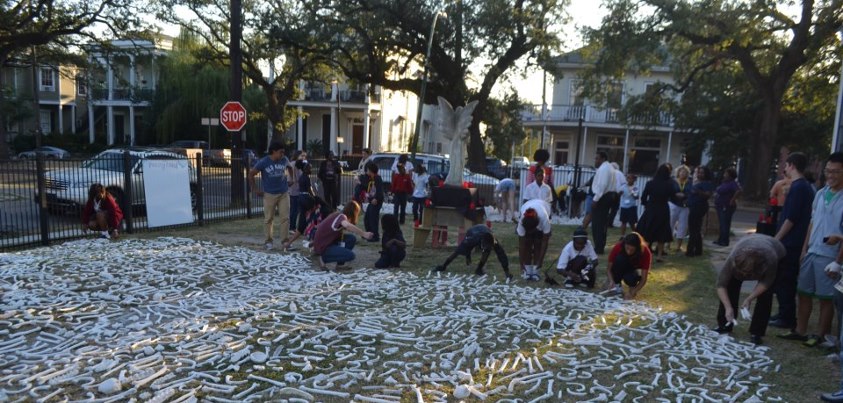
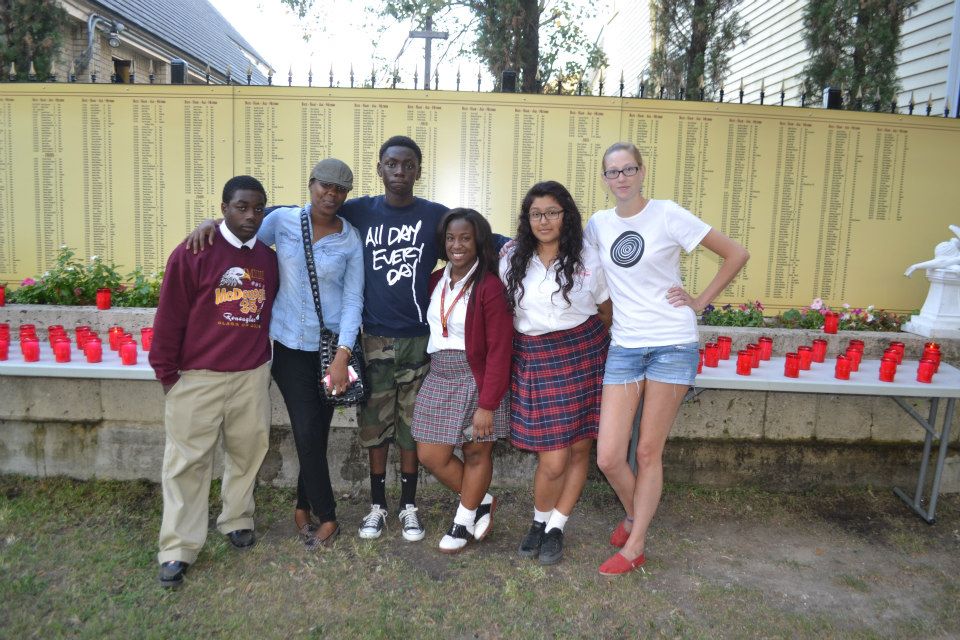
Emily on far right wearing her OMB shirt with Devin, Ms. Janelle, Emmanuel, Brielle and Sonya (L-R). You guys ROCK!

